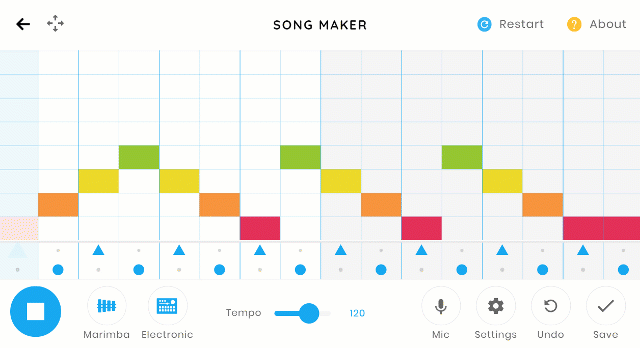
Have you explored the Chrome Music Lab? It is an incredible interactive site. The site is a combination of fun and learning in an interactive interface. There are a variety of different interactives that users can experiment with to explore music. If you look closely you can even see some of the science connected to sound and music.
There are 13 different "experiments" represented by different boxes on the main site page. Each of the experiments has several layers. Here are a few basic tips for using the site:Music is for everyone. So this year for Music In Our Schools month, we wanted to make learning music a bit more accessible to everyone by using technology that’s open to everyone: the web. Chrome Music Lab is a collection of experiments that let anyone, at any age, explore how music works. They're collaborations between musicians and coders, all built with the freely available Web Audio API. These experiments are just a start. Check out each experiment to find open-source code you can use to build your own. - From the Site
- Scrolling over a box will give you the name of the experiment.
- Clicking on the arrow will open up the interactive portion of the experiment.
- Each of the experiments is a little different. Click, click and click some more to make sure you don't miss anything.
For example:
The Rhythm Experiment lets you set patterns of percussion by marking spots on the bottom of the screen. If you click on the arrows on the side you will get a different set of musicians with different instruments. Press play after you set it up and you have your own composition. The Bongo's and Cowbells are a favorite. (Last one in the experiment.)
The Spectrogram is a single screen that allows you to visualize the sounds a variety of different objects make. You can even turn on your microphone and visualize your singing voice. - There is a yellow question icon near the top right that will tell you about each individual experiment.
I think the site could be used in any classroom where creativity, critical thinking, and curiosity are part of the curriculum.






.png)